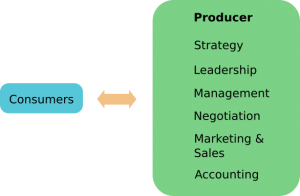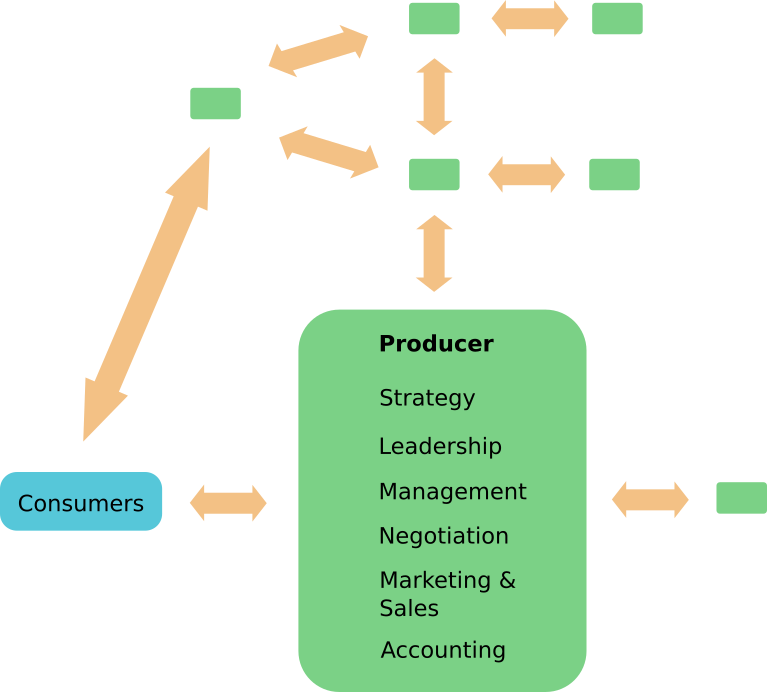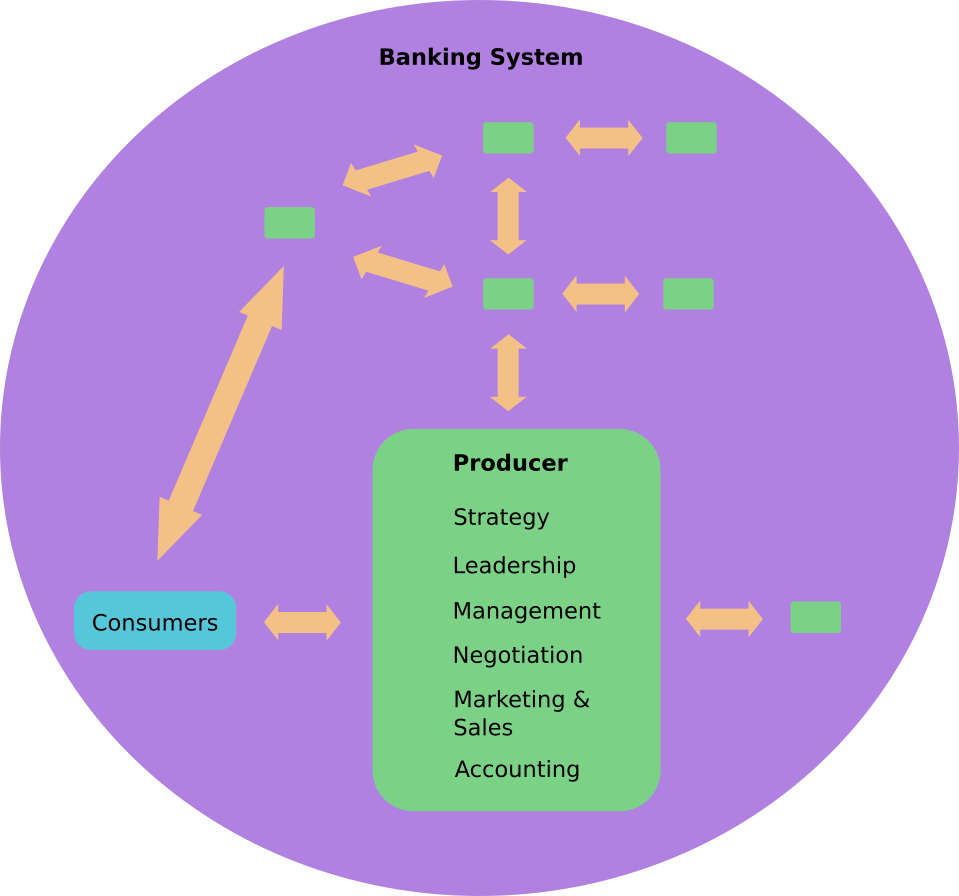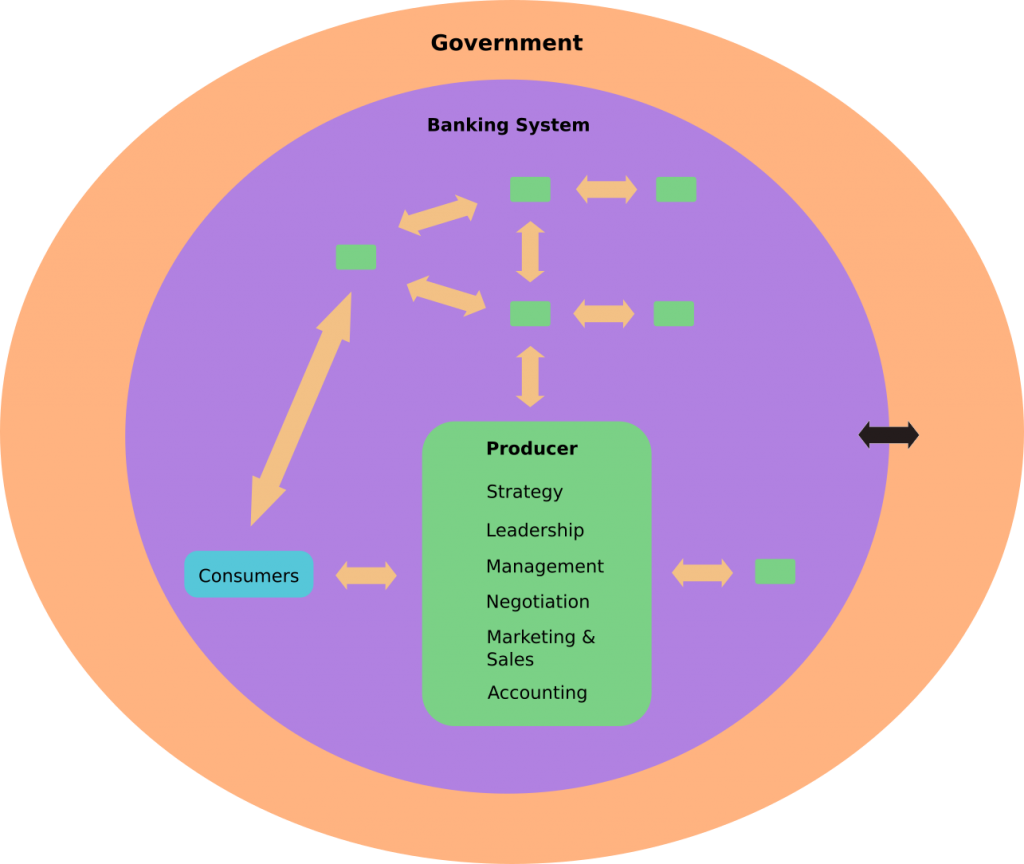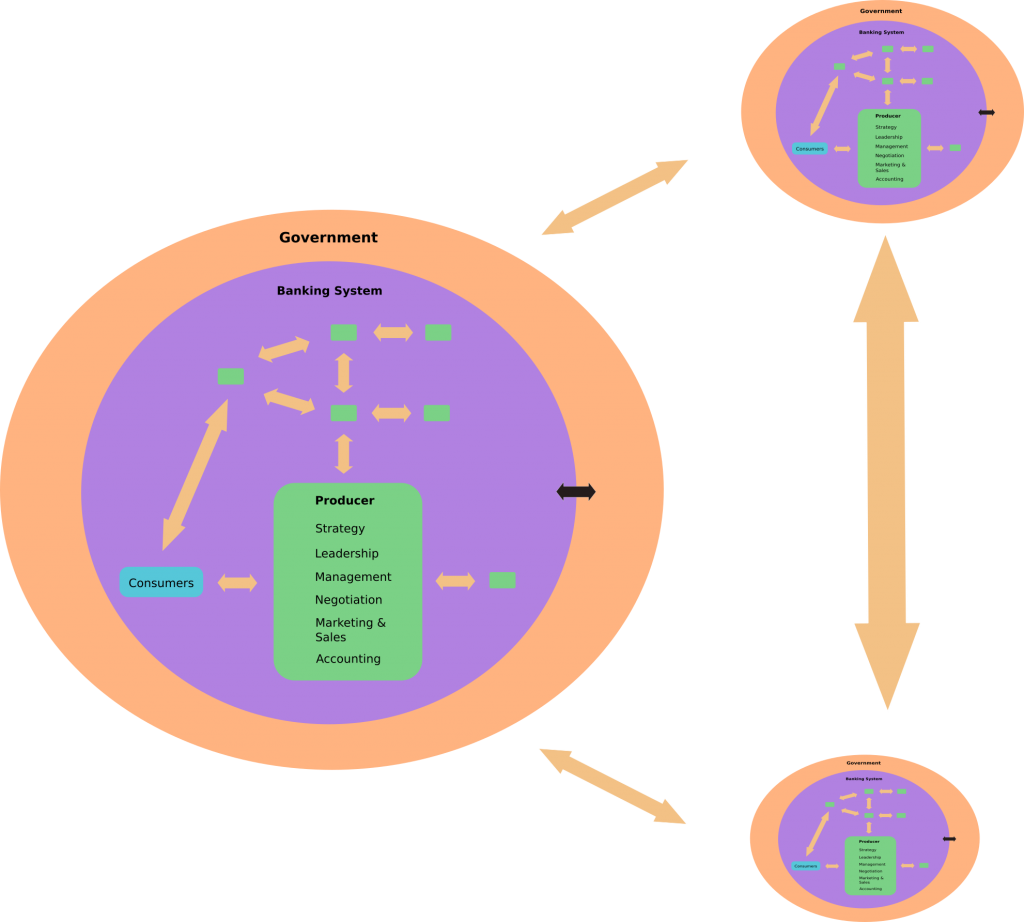Introduction
Here I want to establish a big picture view of the economy.
Every economy consists of production and consumption. Production always comes first. Imagine yourself on a remote island. How do you survive? You have to hunt and gather and build a shelter. That’s production. If you don’t do that first, you will have nothing to consume. As a population grows, it will allow for people to divide the work among each other. In this way, people can specialize in a field and become even more productive. But the underlying principle is still valid. You have to produce in order to consume.
Consumption is relatively easy. Production requires a special set of skills though. Apart from the obvious technical skills, producers have to be able to plan in advance how to sell their products and services. This requires a number of key competences outlined in this graphic:
Who or what is a producer?
A producer is first of all every working individual. You may not have seen yourself that way, but if you’re employed, you are a producer. You produce certain things that are valued by your employer. If you’re staying at home, taking care of the household and children while your spouse goes to work, then you are a producer as well. Legally, producers can be either private persons or they can be registered as some form of a business. Someone is in charge of the business, guiding employees (if he has any) towards a primary goal.
All business roles require the same general skills to a differing extent. The underlying assumption for anyone who wants to understand and succeed in the business world is: The only way for a producer to survive is to give customers something they want. If someone produces something that is only interesting to him, then he will not survive, unless he additionally produces something desired by customers. That means a producer needs to know what people need or want, offer it to them at an affordable price, and keep costs lower than expenses. The producer earns money through benefiting customers efficiently. If it benefits them inefficiently, it runs the risk of being driven out by more efficient competitors. If it works efficiently, it may expand and get to serve even more people. A successfully running business is a win-win situation for the producer and the consumer.
This is not the whole picture, yet. A more complete picture would look like this:
Every business depends to some extent on other businesses. Even if someone starts a small home business all by himself, somehow he needs to get a computer, paper, a desk, and more from other businesses. Businesses are also in competition with each other. They offer similar products, sometimes the same products. They try to stand out from the crowd through different offers. Some businesses exist only to serve other businesses. Others focus exclusively on private consumers. The next picture introduces the banking system:
Technically, banks are just producers of financial services and could be represented by one of the green rectangles. But legislation as well as globalization have transformed the banking system into something more than just a normal business. Governments for example, have introduced central banks which have the exclusive right to create currency. No other business has that right. Also, every business depends on the banking system for things like loans, keeping their money in an account and transfering money.
This leads us to an even more complex picture:
Here we have summarized the economy for a whole nation. You have consumers and producers exchanging goods for money. You have producers competing and cooperating with each other. All of them depend on the banking system and all of this is overseen and regulated by the government. The black arrow indicates the government’s various interventions into the economy. Governments set up rules for the economy in general as well as for particular areas. First of all, they tax their participants. Second, they may give certain institutions privileges, that they may not otherwise have (like the postal office or the central bank). They might force producers to sell their goods for certain prices (rent control, minimum wage, subsidies). Third, unless it is a communistic government, it will provide to some extent for the security of private property.
There is one more picture:
Today, the economy is not limited to one particular country. The economies of every country are interconnected. People import and export goods. People move to other countries for economic reasons. Governments intervene in trade with other countries. Businesses build new branches in other countries. All of this leads to an incredibly complex system. Producers are forced to compete against producers in other countries. Producers are also able to cooperate with producers in other countries. This highly complex system allows us to reap even more benefits of the division of labour. Increasing specialization allows for ever increasing quality while lowering the prices of products.
Conclusion
In order to understand the world today, we need to be aware of how the economy works in general. This knowledge will help us understand and predict trends that could impact our business. There’s constant change in the world, so there needs to be constant awareness of what exactly is changing and how it will affect us. We need to learn to distinguish useless noise from valuable information. The consequences of financial, political and natural disasters are no longer limited to small regions. They can affect the entire world and therefore your job and your business. One doesn’t need to understand everything to make sense of the world. A certain basic understanding of several important areas coupled with extensive knowledge in one or two specialized areas is sufficient. But that general knowledge needs to be in place. Finally, to succeed in business you need to develop a producer’s mindest.
If you’re interested in economics, I recommend reading this book review.
